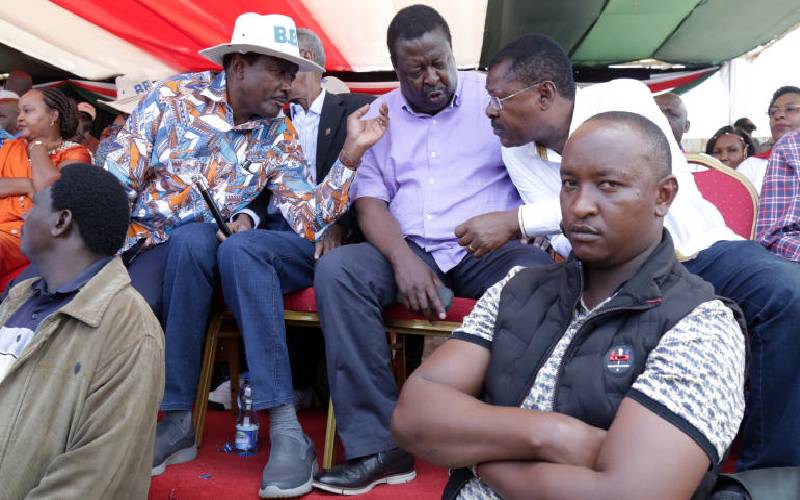×
The Standard e-Paper
Join Thousands Daily

At political campaign rallies, ODM leader Raila Odinga relishes entertaining his supporters with imagined and spiced up football commentaries.
The drama depicts his desired outcome in the electoral competition. It places the Raila-led team on one side, with his opponents on the other. Invariably, the excitement peaks with Raila himself scoring the most vital goal.